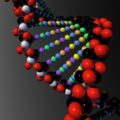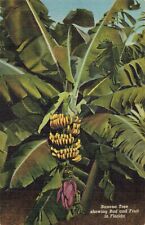
Banlec, the lectin found in bananas, is a potent inhibitor of HIV, a discovery that may yield new treatments to prevent the sexual transmission of HIV, say University of Michigan Medical School researchers. Describing their research in the Journal of Biological Chemistry, the researchers explain how in laboratory tests, BanLec was as potent as two current anti-HIV drugs.
New ways of stopping the spread of the HIV are vitally needed. The rate of new infections of HIV is outpacing the rate of new individuals getting anti-retroviral drugs by 2.5 to1, and it appears an effective vaccine may be decades away.
“HIV is still rampant in the U.S. and the explosion in poorer countries continues to be a bad problem because of tremendous human suffering and the cost of treating it,” says study senior author David Marvovitz. Although condom use is quite effective, condoms are most successful in preventing infection if used consistently and correctly, which is often not the case.
Some of the most promising compounds for inhibiting vaginal and rectal HIV transmission are agents that block HIV prior to integration into its target cell. The new study describes the complex actions of lectins and their ability to outsmart HIV. Lectins are sugar-binding proteins. They can identify foreign invaders, like a virus, and attach themselves to the pathogen.
Marvovitz and his co-researchers discovered that BanLec can inhibit HIV infection by binding to the sugar-rich HIV-1 envelope protein, gp120, and blocking its entry to the body. After developing the biopurification method to isolate BanLec the team discovered it was similar in potency to T-20 and maraviroc, two anti-HIV drugs currently in clinical use.
While clinical use may be some time away, the researchers say that even modest success could save millions of lives. Other studies have estimated that 20 percent coverage with a microbicide that is only 60 percent effective against HIV may prevent up to 800,000 HIV infections a year.
Related:
HIV’s Virulence An Evolutionary Accident
Combination approach could eradicate HIV from body
African Trial Shows Circumcision “Can Save A Lot Of Lives”


















Comments are closed.